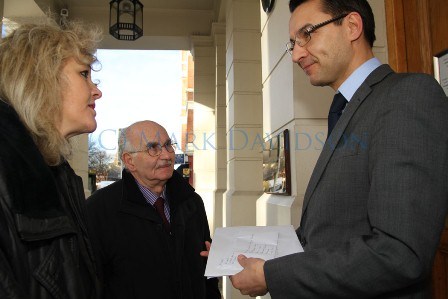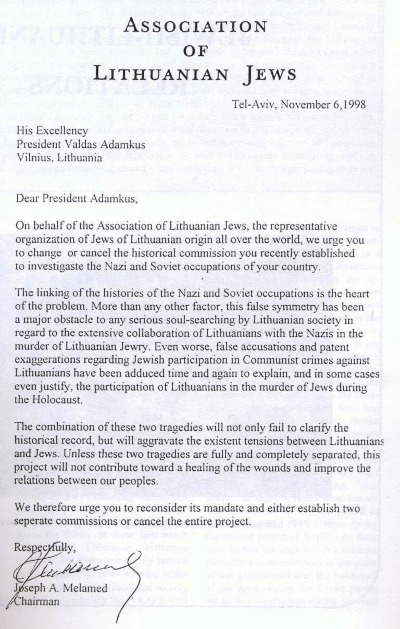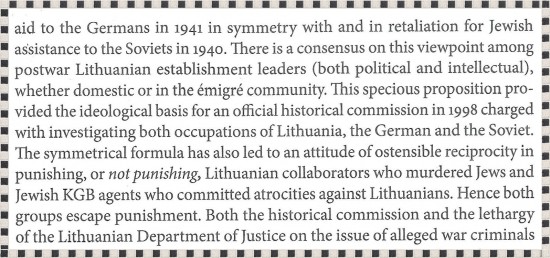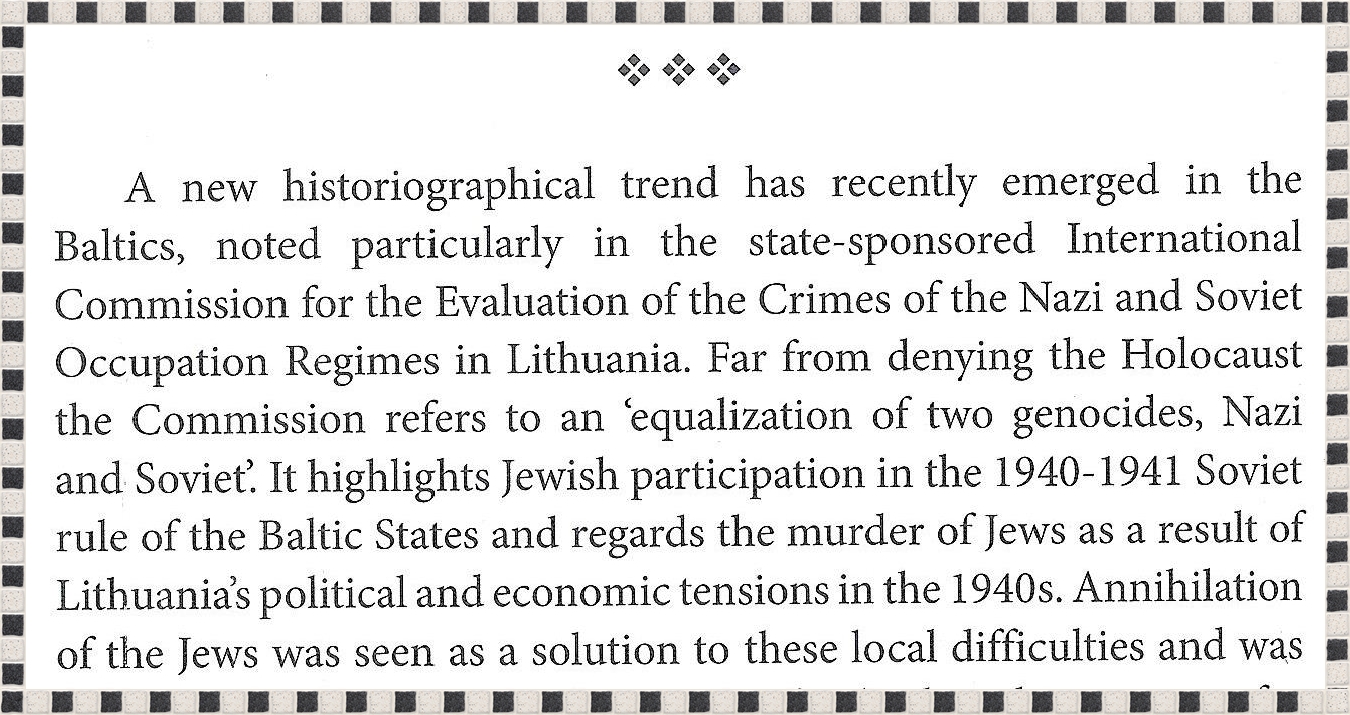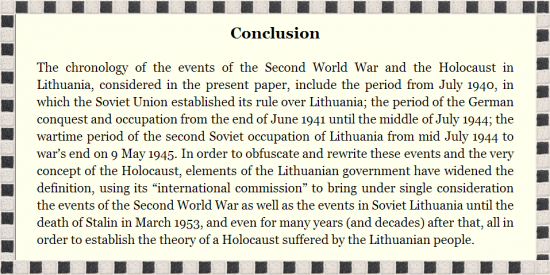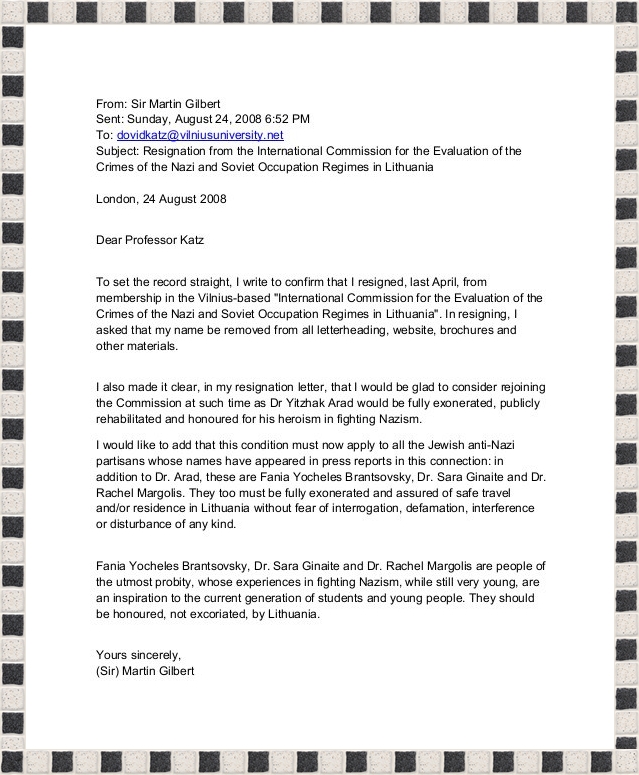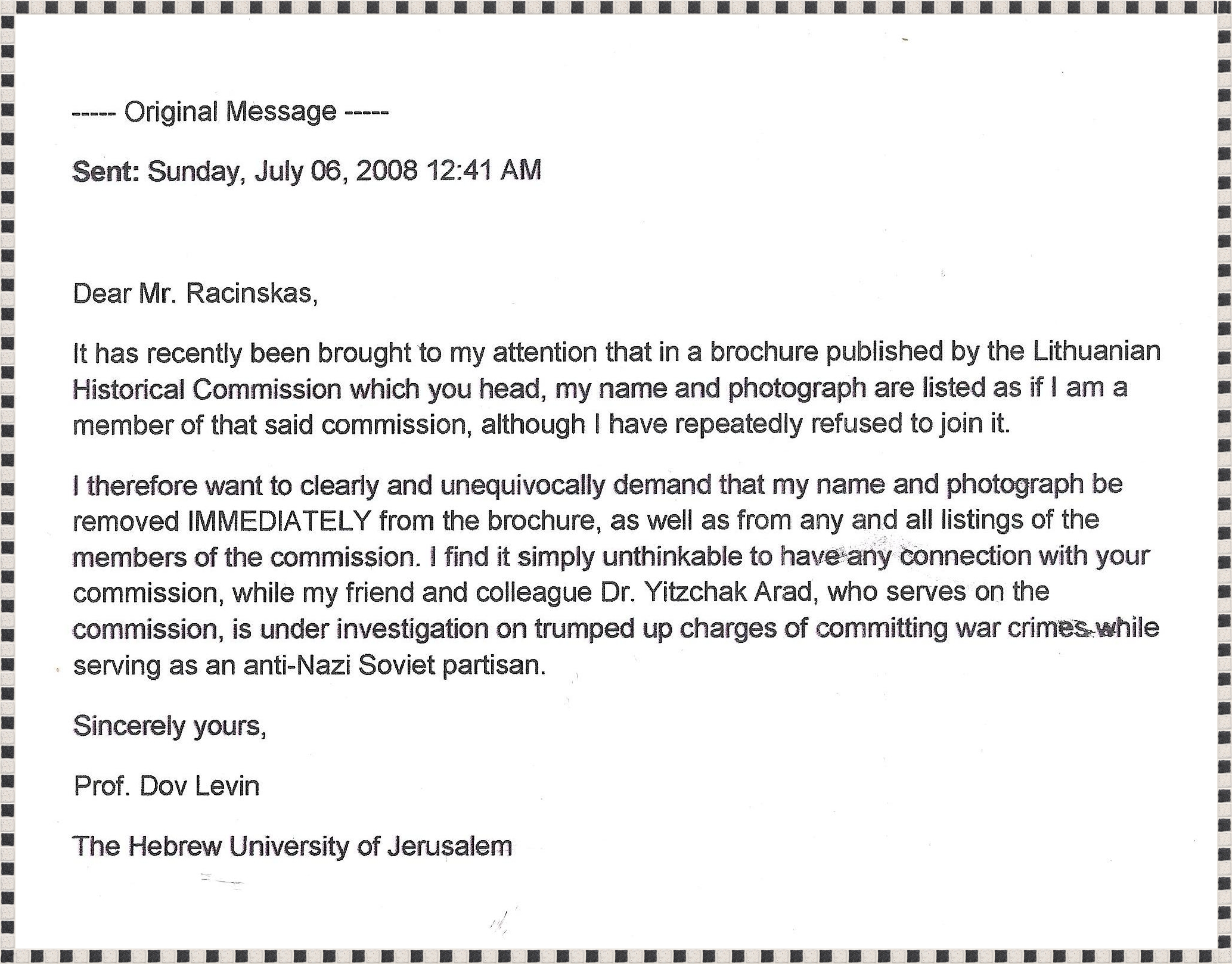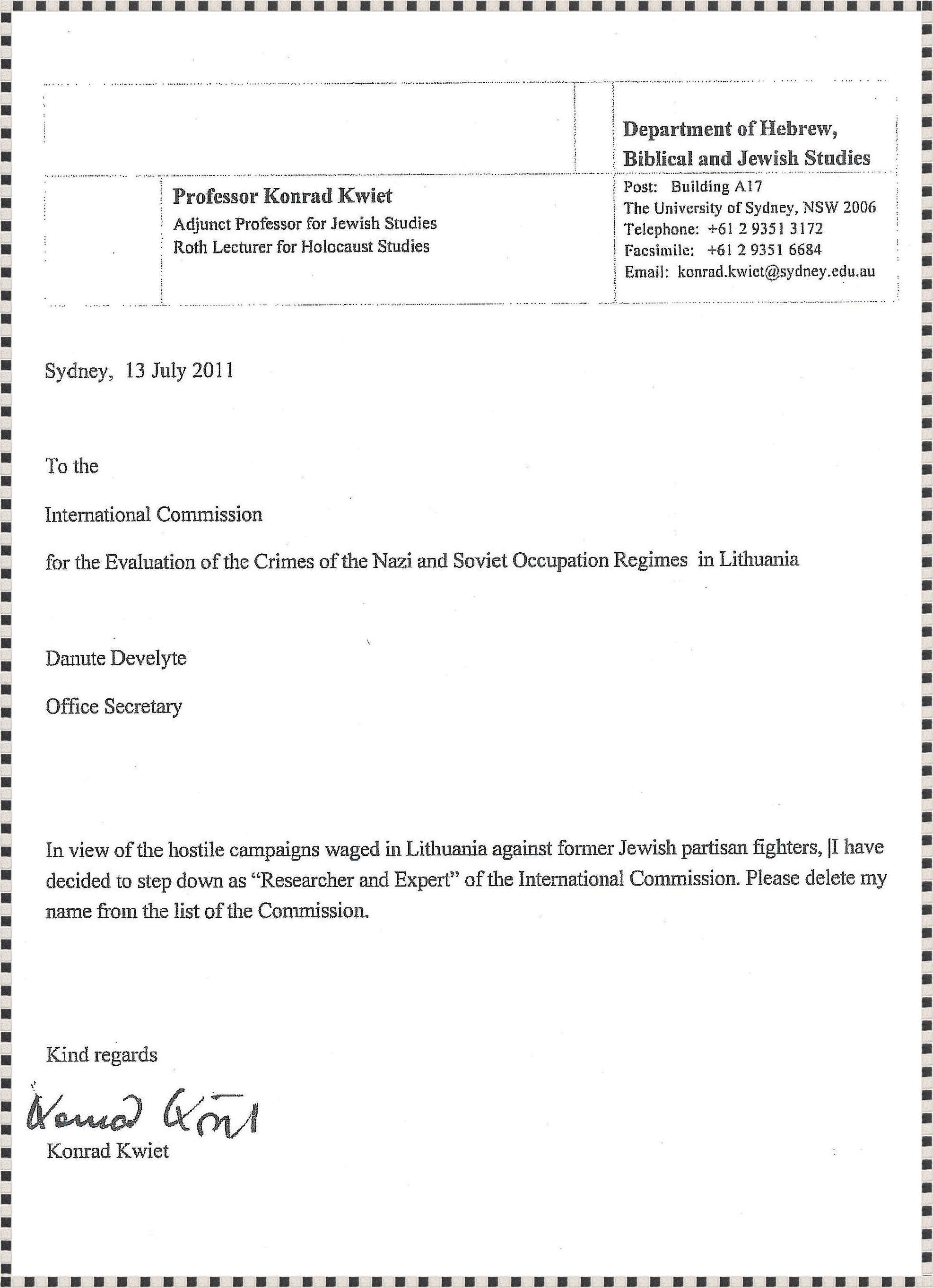Five Occurences of the word same in the Prague Declaration:
1 “Consciousness of the crimes against humanity committed by the Communist regimes throughout the continent must inform all European minds to the same extent as the Nazi regime’s crimes did”
2 “Believing that millions of victims of Communism and their families are entitled to enjoy justice, sympathy, understanding and recognition for their sufferings in the same way as the victims of Nazism have been morally and politically recognized”
3 “Recognition that many crimes committed in the name of Communism should be assessed as crimes against humanity serving as a warning for future generations, in the same way Nazi crimes were assessed by the Nuremberg Tribunal”
4 “Establishment of 23rd August, the day of signing of the Hitler-Stalin Pact, known as the Molotov-Ribbentrop Pact, as a day of remembrance of the victims of both Nazi and Communist totalitarian regimes, in the same way Europe remembers the victims of the Holocaust on January 27th”
5 “Adjustment and overhaul of European history textbooks so that children could learn and be warned about Communism and its crimes in the same way as they have been taught to assess the Nazi crimes”
25 November 2010. For the first time since the Prague Declaration was proclaimed on 3 June 2008, a group of ambassadors has spoken out to oppose ‘Double Genocide’. Opposition to the Declaration has been mounting steadily.
‘Spurious attempts are made to equate the uniquely evil genocide of the Jews with Soviet crimes against Lithuania, which, though great in magnitude, cannot be regarded as equivalent in either their intention or result.’
Excerpt from a letter to leaders of Lithuania from the Vilnius-based ambassadors of Britain, Estonia, Finland, France, Netherlands, Norway and Sweden, 25 November 2010
DETAILS HERE AND HERE
♦
◊
The Prague Declaration was preceded by perfectly legitimate and noble condemnations of the evils of Soviet communism in the European Union’s institutions, before this movement was hiijacked by the far right’s red-equals-brown campaigners and their government backers in the eastern part of the EU. See: Soviet Crimes.
2008
Holocaust Survivors protest.
British Parliament (31 January 2008): MP John Mann, chairman of the All-Party Parliamentary Group against Antisemitism, critiques the January 2008 precursor of the ‘Prague Declaration’ [see entry for 2:30 PM, paragraph 4; see also paragraph 3].
Algemeyner Zhurnal (25 July 2008): ‘Will the world remain silent as a new and more cunning form of Holocaust Denial comes before — the European Parliament?’ [in Yiddish] (by Dovid Katz). Part II.
Jerusalem of Lithuania [publication of the Jewish Community of Lithuania] (Oct-Dec 2008): ‘Concept inflation and the criminalization of debate’ (by Leonidas Donskis).
Israel Journal of Foreign Affairs 3.3: 59-72: ‘Conflicting cultures of memory in Europe: New Borders between East and West?’ by Heidemarie Uhl.
2009
IPS (6 April 2009): ‘Communist ideology, as bad as Nazism?’ (by Zoltán Dujisin).
Institute for Global Jewish Affairs (1 May 2009): ‘Reviewing the Holocaust anew in multiple contexts’ (by Yehuda Bauer).
Jewish Chronicle (22 May 2009): ‘Prague’s declaration of disgrace: a European attempt to equate Communism with Nazism will falsify history’ (by Dovid Katz).
Irish Times (30 May 2009): ‘Genocide Industry has hidden agenda. Attempts at equalizing historical wrongs are often aimed at Holocaust Obfuscation’ (by Dovid Katz).
Jerusalem Post (12 July 2009): ‘A combined day of commemoration for victims of Nazism and Communism?’ (by Efraim Zuroff).
ITF [International Task Force on Holocaust Education, Remembrance and Research] (17 August 2009): Statement of the ITF Chair regarding the European Parliament resolution on European conscience and totalitarianism’ (by Ambassador Tom Vraalsen).
Guardian (28 September 2009): ‘The Nazi whitewash. I can’t believe Eric Pickles supports Latvia’s “For Fatherland and Freedom” party, which wants to rewrite a murderous history’ (by Efraim Zuroff); alternate link.
Luciana Berger’s Blog (3 October 2009): ‘With friends like these…’ (by Luciana Berger).
OSCE Human Rights Conference in Warsaw (5 October 2009): ‘“Prague Declaration” is a project to delete the Holocaust from European history’ (by Shimon Samuels); press release; alternate link.
Guardian (20 October 2009): ‘I knew this day of Holocaust “debate” would come. Just not in my lifetime’ (by Jonathan Freedland)
Clemens Heni (26 October 2009): ‘The Prague Declaration, Holocaust trivialization and antisemitism’ by Clemens Heni. PDF.
Jewish Chronicle (29 October 2009): UK MP John Mann, chair of the All-Party Parliamentary Group against Antisemitism, calls the Prague Declaration ‘a sinister document’ in his ‘Europe must focus on Baltic hate’.
Jerusalem of Lithuania (Autumn 2009): Milan Chersonski, editor of Jerusalem of Lithuania, publication of the Jewish Community of Lithuania, discusses the renewed government campaign against Fania Yocheles Brantsovsky, librarian of the Vilnius Yiddish Institute, in the context of the red-equals-brown movement in Europe.
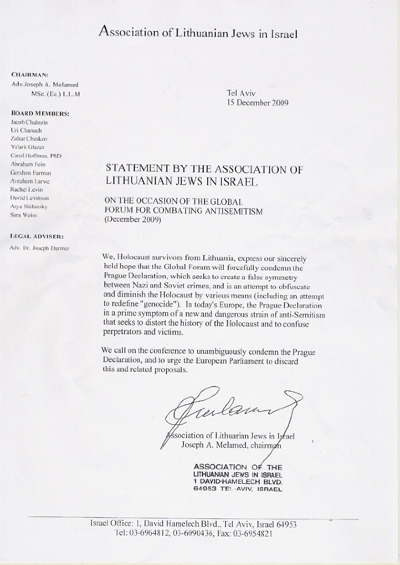 Association of Lithuanian Jews in Israel asks the Global Forum for Combating Antisemitism to condemn the Prague Declaration.
Association of Lithuanian Jews in Israel asks the Global Forum for Combating Antisemitism to condemn the Prague Declaration.
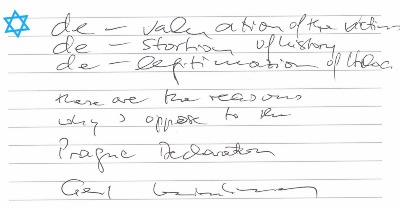 Global Forum for Combating Antisemitism (16 December 2009): Informal statement by German parliamentarian Gert Weisskirchen.
Global Forum for Combating Antisemitism (16 December 2009): Informal statement by German parliamentarian Gert Weisskirchen.
Washington Jewish Week (30 December 2009): ‘Don’t let the Holocaust be rewritten out of history’ by Dovid Katz.
2010
Scholars for Peace in the Middle East / SPME (4 January 2010): ‘The Prague Declaration: Antisemitism with a democratic face’ by Clemens Heni. Also on WPK.
Jewish Chronicle (7 January 2010): ‘A sinister scheme to devalue the Shoah is gathering steam’ by Efraim Zuroff.
The Guardian (8 January 2010): ‘Halting Holocaust obfuscation. The Baltic ultranationalists rewriting east European history as an equal Nazi-Soviet “double genocide” must be stopped’ by Dovid Katz. Republication in Russian.
Jerusalem Post (25 January 2010): ‘Remembering accurately on International Holocaust Remembrance Day’ by Yehuda Bauer.
Haaretz (26 January 2010): ‘Shoah scholars slam European Union Parliament for Obfuscation campaign’ by Cnaan Liphshiz.
Simon Wiesenthal Center (26 January 2010): Rabbi Abraham Cooper, associate dean of the Simon Wiesenthal Center, responds to the Arad accusations plus plans to replace Holocaust Remembrance Day with a mixed red-brown memorial day. Excerpt: ‘And how exactly, for example, would such “joint commemorations” unfold in Lithuania? A moment of silence for Jewish citizens butchered by the Nazis and their local collaborators, followed by a moment of silence for these victimizers, later turned into “victims of Communism?” I urge Lithuania and other supporters of this drive to drop their campaign and instead preserve the memory of the Shoah and the unique suffering of its victims that is commemorated on Holocaust Memorial Day.’
Warsaw Yiddish Radio, Naye Khvalyes, 31 January 2010): radio interview in Yiddish of Dovid Katz by Katka Mazurczak. Alternate link.
WPK (1 February 2010): ‘Antisemitismus und die Prager Deklaration von Juni 2008’ by Clemens Heni.
Jewish Chronicle (4 February 2010): Simon Round’s interview of Dr Efraim Zuroff.
The Nation (12 February 2010): Mark Weitzman, United States director of governmental affairs at the Wiesenthal Center, reports that ‘[from] his talks with US officials in Washington and on Capitol Hill, he believes that the American silence on the matter will soon change as they are beginning to understand the seriousness of the situation’.
The New York Jewish Week (16 February 2010): ‘Islamophobia and Antisemitism: Holocaust Revisionism in Germany’ by Benjamin Weinthal.
Connecticut Jewish Ledger (26 February 2010): ‘Conversation with… Dovid Katz’ by Cindy Mindell. PDF.
Clemens Heni’s paper at the Baltic Forum in Riga on 15 March 2010.
Jerusalem Post (2 May 2010): ‘No tolerance for false history’ by Efraim Zuroff.
Tablet Magazine (3 May 2010): ‘The Crime of Surviving’ by Dovid Katz.
The Canadian Jewish News (21 May 2010): ‘Montreal professor launches Litvak Studies Institute in Vilnius’ by David Lazarus.
WPK (3 June 2010): ‘Joachim Gauck, die Prager Deklaration und europäischer Antisemitismus heute’ by Clemens Heni.
HITB (3 June 2010): ‘Contra Prague: Declaration on Unequal Totalitarian Regimes’ by Dovid Katz.
WPK (17 June 2010): ‘„Geistige Gesundung“ – Joachim Gauck und die neueste deutsche Ideologie’ by Clemens Heni.
NPD-Blog.Info (21 June 2010): ‘Zuroff: Gaucks Kandidatur “extrem beunruhigend”’.
Jerusalem Post (27 August 2010): ‘A threat to Holocaust memory’ by Efraim Zuroff.
Illustrierte Neue Welt (August-September 2010): ‘Relativierung des Holocaust. Prof. Dovid Katz im Gespräch mit Karl Pfeifer’ by Karl Pfeifer.
Leonidas Donskis’s blog (1 September 2010): ‘When will the truth finally set us free?’ by Leonidas Donskis.
Parliamentary Committee Against Antisemitism (1 September 2010): ‘Time to free Europe of this poison’ by Dovid Katz.
Guardian (14 September 2010): ‘I see why “double genocide” is a term Lithuanians want. But it appals me. To equate Soviet and nazi crimes is dishonest and historically false. Why has this poisonous idea taken such deep root?’ by Jonathan Freedland.
Central and Eastern European Watch (15 September 2010): ‘”Double Genocide” and Lithuania’ by Karl Naylor.
The Guardian (17 September 2010): ‘Lithuania’s double genocide policy’. Letter to the Editor from Professor Tessa Rajak.
‘Lithuania has taken more than a “walk-on part in British politics”. When the European parliament called on its members, in April 2009, to mark 23 August as the European Day of Remembrance for Victims of Stalinism and Nazism, and when the OSCE, in July 2009, adopted the Vilnius Declaration on increasing awareness of totalitarian crimes, we too became party to the equation of Nazi crimes with those of communism in the Baltic states. By accepting the parallelism, we also have excused collaborators, ignored the unspeakable savageries perpetrated in Lithuania between 1941 and 1945, condoned the pardoning of every single Lithuanian war criminal until today, and endorsed the prosecution of Jewish resistance fighters, whose situation remains unresolved.’
Professor Tessa Rajak (London) in The Guardian (17 Sept 2010)
The Guardian (30 September 2010): ‘Why Red is not Brown in the Baltics. Unhappily, Timothy Snyder’s historical reassesment of the Nazi-Soviet pact coincides with Baltic ultra-nationalist agendas’ by Dovid Katz.
Canadian Jewish News (7 October 2010): ‘Nazi crimes have been downgraded in Lithuania’ by Esther Goldberg.
The Guardian (21 December 2010): ‘Why is the US silent on “double genocide”? While European countries have condemned the new Holocaust revisionism in the Baltics, America shows no moral leadership’ by Dovid Katz. In Russian.
The Guardian (21 December 2010): ‘EU rejects eastern states’ call to outlaw denial of crimes by communist regimes. Eastern European states wanted Soviet crimes “treated according to the same standards” as those of Nazi regimes’ by Leigh Philips.
Jewish Chronicle (29 December 2010): ‘EU halts move to downgrade Shoah’ by Michel Zlotowski.
2011
DefendingHistory.com: ‘Six countries try to “slip in” Double Genocide in the “Stockholm Programme”; European Commission says: No!”
Parliamentary Committee Against Antisemitism (17 January 2011): ‘Never Again’ by Lord Janner of Braunstone. Report here.
House of Commons, UK Parliament (20 January 2011): speech by MP Denis MacShane. Report here.
DefendingHistory.com (26 January 2011): ‘A rather simple story: Lithuania, the Jews, and the Shoah’ onDefendingHistory.com by Clemens Heni.
Canadian Jewish News (3 February 2011): ‘West must address Lithuanian revisionism: prof’ by David Lazarus.
Jewish Chronicle (4 February 2011): ‘A shameful Shoah whitewash’ in the Jewish Chronicle by Efraim Zuroff.
Jewish Chronicle (4 February 2011): ’Lithuania accused over Holocaust event’ in the Jewish Chronicle by Simon Rocker.
Die Tageszeitung (4 February 2011): ‘”Diese Kampagne macht mich sehr wütend!”‘ [Interview of Dr Shimon Alperovich, chairman of the Jewish Community of Lithuania] by Frank Brendle.
Open Letter, signed by twenty-one persons, hand-delivered to the Embassy of Lithuania in London (7 February 2011).
Letter from the European Commission confirming the negative appraisal of 22 December 2010, regarding attempts to enact ‘Double Genocide legislation’ (21 February 2011). English translation. [A response to Didier Bertin of the Society for the Promotion of the European Human Rights Model]
Society for the Promotion of the European Human Rights Model (25 February 2011): Open letter from Didier Bertin to Viviane Reding, vice president of the European Commission. English translation.
Society for the Promotion of the European Human Rights Model. Selection of documents.
East European Jewish Affairs (vol 41 [December] 2011, no. 3, pp. 207-221): ‘The detonation of the Holocaust in 1941: a tale of two books’ [review of Timothy Snyder’s Bloodlands and Alexander Prusin’s The Lands Between] by Dovid Katz.
2012
Seventy European Union parliamentarians sign the Seventy Years Declaration, published on 20 January 2012, which contains the language: ‘We reject attempts to obfuscate the Holocaust by diminishing its uniqueness and deeming it to be equal, similar or equivalent to Communism as suggested by the 2008 Prague Declaration.’
Jerusalem Post (28 May 2012): ‘A new dilemma in hosting a German president’ by Efraim Zuroff.
Haaretz, Books Supplement (24 September 2012): ‘Killed by their neighbors’ [review of David Bankier’s Expulsion and Extermination: Holocaust Testimonials from Provincial Lithuania; Frank Buonagunio’s The Last Bright Days. A Young Woman’s Life in a Lithuanian Shtetl on the Eve of the Holocaust; Ellen Cassedy’s We Are Here: Memories of the Lithuanian Holocaust]’ by Efraim Zuroff [PDF of print edition here].
The Times of Israel (15 November 2012): ‘Efraim Zuroff, history’s lonely defender’ by Dovid Katz.
DefendingHistory.com (1 December 20120): ‘The Holocaust in Lithuania, and its obfuscation, in Lithuanian sources’ by Yizhak Arad.
London Jewish News (13 December 2012): ‘You cannot praise fascists and be pro-human rights’ by Dovid Katz.
David Williams, Rewriting History. Holocaust Revisionism Today, Hope Not Hate: London 2012.
Marc Ramdosky and Danny Ben-Moshe (producers of the documentary film) Rewriting History, Sydney 2012.
2013
Website of the Jewish Community of Lithuania (17 January 2013): ‘Instead of truth about the Holocaust — myths about saving Jews’ by Pinchos Fridberg. Also in the Algemeiner Journal (15 January 2013), the Operation Last Chance website of the Simon Wiesenthal Center (19 December 2012), and Defending History (24 December 2012), where links are provided to the publications of the article in the Russian language.
Jerusalem Post (9 April 2013): ‘A threat too serious to ignore. Israel should take action on Holocaust-related issues as some “culprits” likely to take over EU presidency’ by Efraim Zuroff.
Israel Journal of Foreign Affairs (May 2013). ‘Marek Jan Chodakiewicz, Intermarium: The Land between the Black and Baltic Seas’ reviewed by Dovid Katz.
DefendingHistory.com (27 May 2013): ‘State-sponsored collective memory revisionism; a 21st century incarnation of Holocaust Denial?’ by Dovid Katz [PDF of power point presentation at the Second International Conference on Holocaust Museums and Memorial Places in Post-Communist Countries (in Riga, Latvia)].
Huffington Post (31 May 2013): ‘Truth wins’ by Edward Jacobs.
Section on the Prague Declaration (4 June 2013) in Clemens Heni’s paper at the World Jewish Congress Institute for Research and Policy.
DefendingHistory.com (15 November 2013): Clemens Heni’s works on the Prague Declaration.
2014
At the end of 2013, in an announcement disseminated mainly in January 2014, the World Union for Progressive Judaism announced it “fully endorses the Seventy Years Declaration. This Declaration, endorsed by 70 European Union parliamentarians who represent all sides of politics, is an attempt to distinguish between the horrors of the Shoah and other crimes against humanity. This has taken on a greater importance since the Prague Declaration of 2008 which attempts to equate the era of Nazism to that of Communist tyranny.”
In late March 2014, the Board of Deputies in London called on members of the European Parliament to work against the Prague Declaration and its ethos, in its A Jewish Manufesto, issued in the run-up to the European Parliament elections.
May 2014: Dan Stone’s new book, Goodbye to All That? A History of Europe Since 1945 (Oxford University Press) refers to the debate symbolized by the Prague Declaration vs. the Seventy Years Declaration.
Apastekhlatroymer: ‘Die Geschichte verteidigen – Defending History’ by Hans Breuer (post of 21 June 2014).


